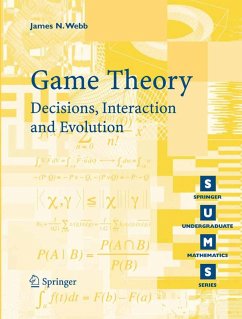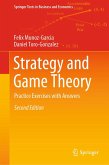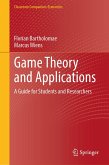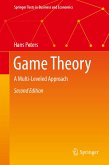The outstanding feature of the book is that it provides a unified account of three types of decision problem:
- Situations involving a single decision-maker: in which a sequence of choices is to be made in "a game against nature". This introduces the basic ideas of optimality and decision processes.
- Classical game theory: in which the interactions of two or more decision-makers are considered. This leads to the concept of the Nash equilibrium.
- Evolutionary game theory: in which the changing structure of a population of interacting decision makers is considered. This leads to the ideas of evolutionarily stable strategies and replicator dynamics.
An understanding of basic calculus and probability is assumed but no prior knowledge of game theory is required. Detailed solutions are provided for the numerous exercises.
Dieser Download kann aus rechtlichen Gründen nur mit Rechnungsadresse in A, B, BG, CY, CZ, D, DK, EW, E, FIN, F, GR, HR, H, IRL, I, LT, L, LR, M, NL, PL, P, R, S, SLO, SK ausgeliefert werden.
"This is supposed to be a mathematical introduction to game theory for undergraduate students. I think both students of economics and mathematics (both with a course of calculus, linear algebra and optimization in Rn) can use this book. The idea of the book is to provide the 'intuition' behind some important theorems of game theory." (Philosophy, Religion and Science Book Reviews, bookinspections.wordpress.com, March, 2014)
"A single-semester elective course in game theory would be an attractive feature of any undergraduate mathematics program. Students would get to use the various mathematical skills they have acquired in a thought-provoking applied context. The book under review is intended as a textbook for such a course. ... Certainly the choice of topics and overall organization is good." (David P. Roberts, MathDL, August, 2007)









